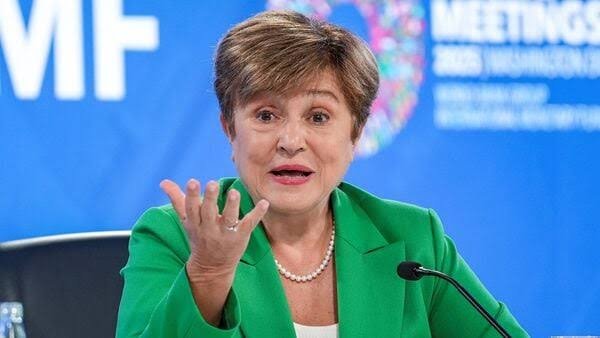During the IMF and World Bank spring meetings held in Washington, D.C., in April 2025, International Monetary Fund (IMF) Managing Director Kristalina Georgieva urged global leaders to act swiftly in addressing the rising trade disputes that threaten to undermine economic stability. In her keynote speech, Georgieva stressed the growing uncertainties in the global economy, which have been exacerbated by aggressive trade policies, particularly those implemented by the U.S. under President Donald Trump. The IMF chief warned that these trade tensions are creating a climate of unpredictability that is impacting both business confidence and consumer behavior worldwide.
Georgieva pointed out that businesses, facing the prospect of unpredictable tariffs and market disruptions, have become increasingly reluctant to make long-term investments. This hesitation has slowed the pace of economic growth in several key regions, particularly in the U.S. and China, the world\'s two largest economies. In addition, consumers, burdened by higher prices and economic uncertainty, are cutting back on spending, further dampening economic prospects. These factors combined have resulted in a significant slowdown in global trade and investment flows.
The IMF also revised its global growth forecast for 2025, downgrading it due to these escalating trade conflicts and their economic repercussions. The fund now estimates that the global economy will grow at a slower pace than previously anticipated. Moreover, the IMF raised its estimate for the likelihood of a U.S. recession to about 40%, a sharp increase from earlier projections. This raised concern among policymakers and financial markets, as the U.S. has long been a primary driver of global growth.
Georgieva concluded by calling for multilateral cooperation and a renewed commitment to resolving trade disputes through dialogue and diplomacy, warning that failure to do so could result in more severe and widespread economic fallout.


















Keydonn
Nice
Suhuyini
Okay
Erry123
Good
Polina
So cool.
Fausta
Ok
Adungchaab
So wary